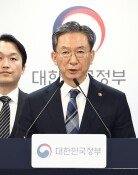Obama and McChrystal
Gen. John K. Singlaub, former chief of staff of U.S. forces in South Korea, told The Washington Post in 1977 when then U.S. President Jimmy Carter sought to withdraw U.S. forces from the Korean Peninsula, President Carter made the decision to withdraw based on information gathered two or three years ago. Over the past year, North Korea has substantially built up its military capability. So the withdrawal can lead to war. An enraged Carter summoned Singlaub but did not immediately dismiss him. Singlaub expressed his conviction again in the U.S. House of Representatives, saying, The Carter administration didnt consult the 8th U.S. Army in charge of South Korea about the consequences of the withdrawal.
Gen. Stanley McChrystal, who was appointed commander of the International Security Assistance Force in Afghanistan last year, gave an interview with the U.S. magazine Rolling Stone. The reporter who interviewed McChrystal described the generals negative perception of U.S. President Barack Obama and Vice President Joe Biden based on what the reporter heard from those close to the general and the reporter`s viewpoint. McChrystal was summoned and immediately dismissed. His colleagues sympathized with him given the difficulty in managing the war in Afghanistan but did not protect him.
Oftentimes, U.S. Army generals are at odds with the president, especially when the chief executive orders objectives deemed excessive. McChrystal received a tall order from President Obama to end the war in Afghanistan by July next year. The general chose the popular magazine to complain but was ousted for having undermined civilian control of the military. He did not know how to communicate with the president and was poor at using the media.
Civilian control of the military means the armed forces should be controlled by the president and Congress. Gen. Douglas MacArthur, head of the U.N. Command, was dismissed because he confronted then President Harry Truman. MacArthur urged expanding the war to fight China for its intervention in the Korean War. Former French Prime Minister George Clemenceau, who ended World War I, said, A war is so important, it cannot be solely left in the hands of generals. Conflict can arise between the president, who is in charge of the administration and diplomacy, and generals, who possess war experience and conviction. In the end, however, the commander-in-chief is the one who makes the final decisions.
Editorial Writer Lee Jeong-hoon (hoon@donga.com)







